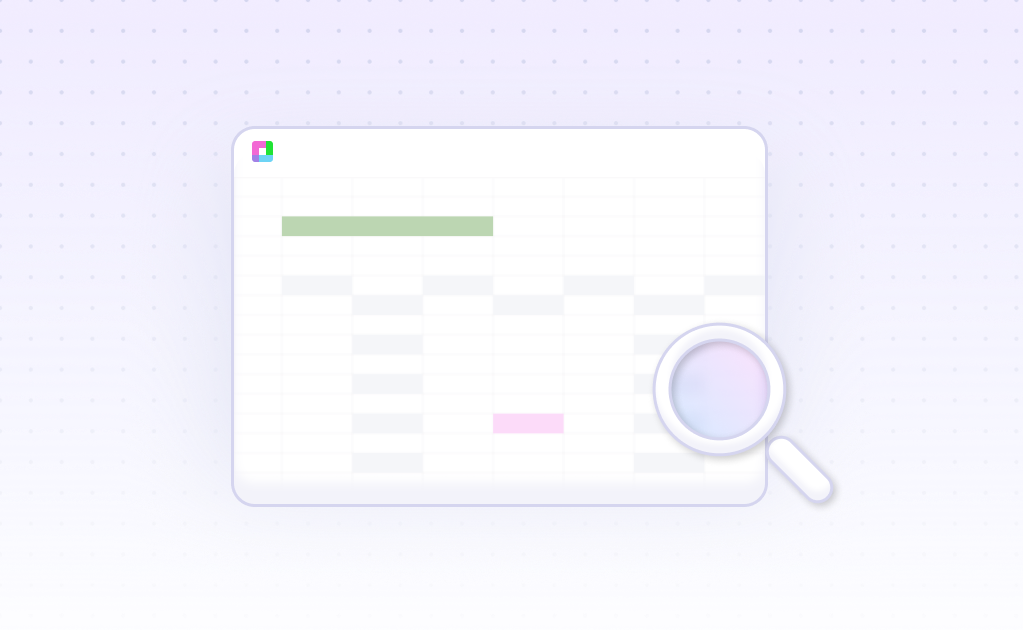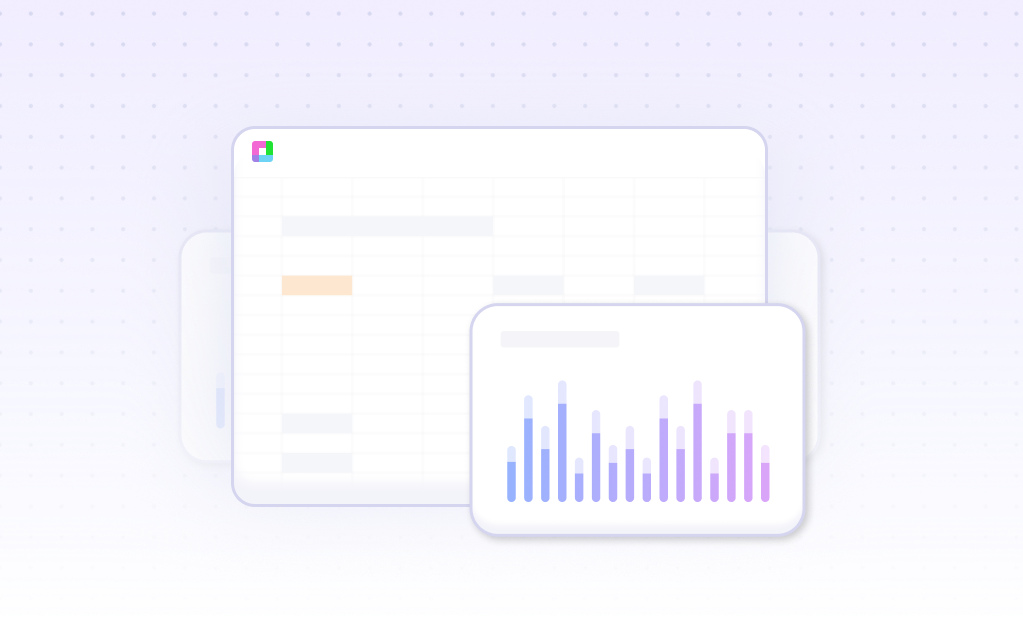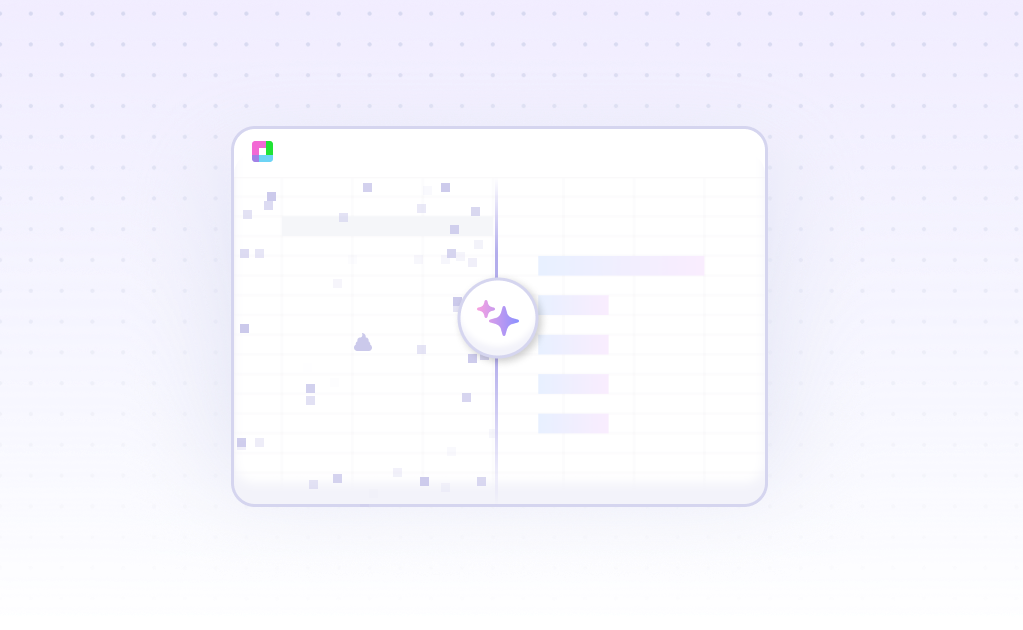
Introduction
Excel remains a widely-used tool for financial analysis, enabling calculations of key financial ratios through formulas and financial statement data. Creating dedicated ratio calculation tables in Excel helps analyze solvency, liquidity, and financial flexibility when compared against industry benchmarks or historical trends.
Sourcetable offers an AI-powered alternative that combines spreadsheet functionality with an intelligent chatbot assistant. This web-based platform accelerates financial analysis through natural language commands, automated formula creation, and integration with over 100 data sources. Used by CFOs, analysts, and financial professionals, Sourcetable streamlines the analysis process without requiring extensive Excel expertise.
Learn how to perform comprehensive solvency, liquidity, and financial flexibility analysis using Sourcetable's AI capabilities at sourcetable.com/signup.
Why Sourcetable Outperforms Excel for Financial Analysis
While Excel revolutionized financial analysis, it has become obsolete for modern business needs. Sourcetable combines Excel's functionality with AI-powered capabilities, delivering superior solvency and liquidity analysis through comprehensive ratio calculations including current ratio, quick ratio, and cash ratio.
Advanced Ratio Analysis
Sourcetable's key ratio multiples approach incorporates essential solvency metrics like debt-to-equity, debt-to-assets, and interest coverage ratio. The platform extends beyond Excel's basic capabilities by including specialized ratios for pharmaceutical and restaurant companies, along with critical financial indicators like Tier 1 capital ratio and liquidity coverage ratio.
AI-Enhanced Efficiency
Unlike Excel's manual processes, Sourcetable leverages AI to automate routine analysis tasks and streamline workflows. Its natural language processing capabilities enable instant data visualization and report generation, while providing round-the-clock support through integrated virtual assistants.
Real-Time Decision Support
Sourcetable's AI-driven platform offers instantaneous access to financial insights and comprehensive risk assessments. This real-time capability surpasses Excel's traditional spreadsheet limitations, fostering better engagement and more informed decision-making in financial analysis.
Benefits of Solvency and Liquidity Analysis with AI-Powered Tools
Solvency and liquidity analysis reveals crucial insights about a company's financial health. Liquid companies can meet short-term obligations and pay ongoing bills, while solvent companies maintain positive net worth and manageable debt loads.
Why Choose AI-Powered Analysis Over Excel
AI-powered spreadsheet tools like Sourcetable revolutionize financial analysis through automated data entry, real-time analysis, and predictive insights. Unlike Excel, which requires technical expertise, Sourcetable's user-friendly interface makes complex financial analysis accessible to everyone.
Sourcetable's Key Advantages
Sourcetable combines collaborative budgeting capabilities with intuitive features that drive informed, mission-driven decisions. Its AI-powered automation and real-time analytics deliver more efficient and effective analysis than traditional Excel spreadsheets.
Solvency, Liquidity & Financial Analysis with AI Spreadsheets
Modern AI-powered spreadsheet tools enable comprehensive financial analysis through automated ratio calculations and integrated visualization. Key solvency metrics like debt/equity, debt/assets, debt/capital, and solvency ratios can be calculated using balance sheet data.
Advanced Liquidity Analysis
Integrated variance charts provide dynamic visualization of liquidity ratios, comparing current performance against historical data and forecasts. IBCS-compliant visuals ensure consistent reporting standards, while integrated commenting features help document trends and insights.
Financial Planning Tools
AI-powered FP&A tools like Maestro represent the evolution of traditional spreadsheet analysis, offering enhanced financial planning capabilities.
Solvency, Liquidity, and Financial Flexibility Analysis Use Cases with Sourcetable
Real-Time Liquidity Monitoring |
Connect live financial data from multiple databases to create unified views of current ratios, working capital, and cash positions. Analyze liquidity trends across business units with automated aggregate functions for faster, more accurate decision-making. |
Cross-Platform Solvency Assessment |
Sync data from various sources to evaluate debt ratios and long-term financial health. Create comprehensive solvency analyses using live data from sales, financial statements, and market conditions to assess |
Financial Flexibility Forecasting |
Integrate marketing, sales, and financial data to model scenarios and predict outcomes. Use AI-powered analysis to evaluate financing options and capital structure decisions with minimized error risk. |
Consolidated Performance Analysis |
Combine data from multiple SaaS platforms to assess business performance metrics. Create actionable insights from complex financial data for informed strategic planning and resource allocation decisions. |
Investment Feasibility Evaluation |
Analyze live data across platforms to evaluate potential investments and acquisitions. Generate accurate financial models with automated calculations for faster assessment of investment opportunities and risks. |
Frequently Asked Questions
What is solvency, liquidity, and financial flexibility analysis?
Solvency, liquidity, and financial flexibility analysis examines a company's statement of financial position to assess its ability to pay debts and interest (solvency), convert assets to cash and meet short-term obligations (liquidity), and respond to unexpected financial needs and opportunities (financial flexibility). These metrics are interconnected, as liquidity and solvency directly impact a company's financial flexibility.
How do you analyze these metrics using the statement of financial position?
You analyze these metrics by examining the timing of asset conversion to cash versus liability payments for liquidity, evaluating total assets ($1,387,000) against total liabilities ($464,000) for solvency, and considering the overall financial structure including equity ($923,000) and retained earnings to assess financial flexibility.
How can Sourcetable help with financial analysis?
Sourcetable provides AI-powered features for financial modeling and forecasting in a spreadsheet interface. You can analyze financial statements and metrics using natural language commands to understand liquidity, solvency, and financial flexibility, enabling faster analysis and more informed decision-making.
Conclusion
Excel remains a standard tool for financial ratio analysis, allowing analysts to calculate key metrics by inputting financial data and using formulas that reference financial statements. Creating dedicated tables and comparing ratios to industry benchmarks provides essential context for solvency, liquidity, and financial flexibility analysis.
Sourcetable offers an AI-powered alternative that combines spreadsheet functionality with an intelligent assistant. This new platform accelerates financial analysis through natural language commands and integration with over 100 data sources. Financial analysts can leverage Sourcetable for modeling and forecasting without extensive Excel expertise.
Start analyzing your financial metrics today with Sourcetable's AI-powered spreadsheet platform at sourcetable.com/signup.
Recommended Analysis Guides
Connect your most-used data sources and tools to Sourcetable for seamless analysis.
Frequently Asked Questions
If your question is not covered here, you can contact our team.
Contact Us




